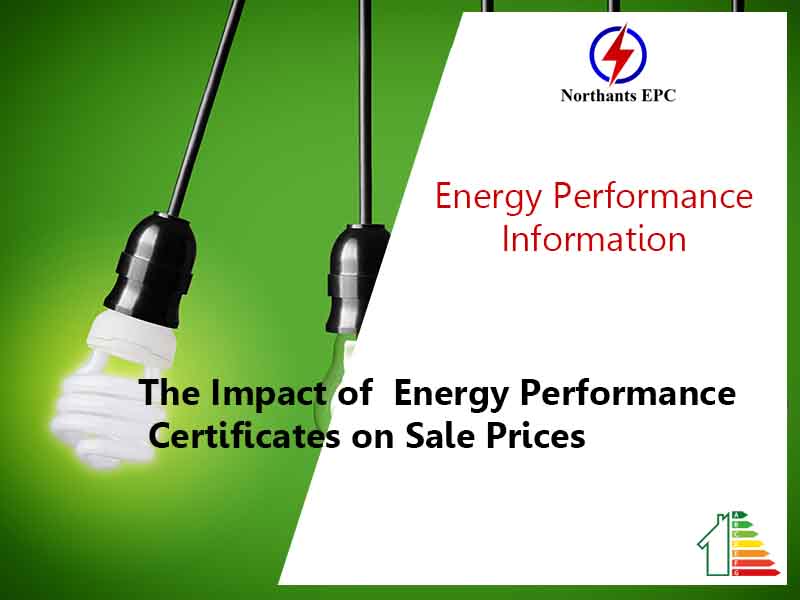The Impact of Energy Performance Certificates on Sale Prices
In the realm of real estate, Energy Performance Certificates (EPCs) have long been considered a measure of a property’s energy efficiency. These certificates are intended to guide homeowners in making their properties more eco-friendly and possibly more appealing to buyers. Nonetheless, recent analysis by Propertymark, an agency trade body, challenges the presumed influence of EPCs on property sales. The findings suggest that high EPC ratings might not have the predicted impact on property prices, prompting agents to propose alternative approaches to promoting energy efficiency in the housing market.
**EPCs and Their Influence on Property Sales**
The debate centres around whether EPCs genuinely make a significant difference in marketing a home and in helping homeowners enhance their property’s energy efficiency. Propertymark’s research, based on feedback from their member agents, paints an intriguing picture. While energy performance certificates have been in use for years, only about a quarter of agent members indicated that buyers consistently express interest in EPCs. What’s more, 15% of agents reported that buyers never show any interest in these certificates at all.
Interestingly, this situation is a notable improvement from a 2018 survey, in which 35% of sales agents reported that homebuyers never displayed any interest in EPCs. Despite this improvement, the study reveals that almost half of residential sales agents still believe that EPCs have little to no influence on the offers homebuyers make on a property. Furthermore, a mere 1% of agents claimed that EPCs consistently impact buyer decisions.
**Challenging Conventional Wisdom**
This research comes as a challenge to conventional wisdom, as previous industry studies have suggested that high EPC ratings directly correlate with higher property prices. However, Propertymark’s analysis raises questions about the reliability of these findings. The trade body acknowledged that many past studies have primarily utilised market data to analyse the impact of EPCs on property prices, rather than directly consulting agents who are involved in setting or negotiating prices.
**Alternative Solutions: The Rise of Property Passports and Net Zero Performance Certificates**
In light of these findings, Propertymark has proposed the adoption of alternative measures to promote energy efficiency and guide property buyers. One such suggestion is the use of Property Passports or Net Zero Performance Certificates (NZPCs), as proposed in the Independent Review of Net Zero. These alternatives are designed to provide more comprehensive information about a property’s heating technology, financial implications, and broader societal effects.
Propertymark suggests that these alternatives could be more effective than EPCs, which have been criticised for not accurately accounting for the cost of energy when assessing property performance. As the real estate industry shifts towards more expensive yet greener energy sources like heat pumps, EPC scores might not offer a true reflection of a property’s energy efficiency potential.
**The Call for Financial Incentives**
In addition to proposing alternative certification methods, Propertymark highlights the need for more robust financial incentives to drive energy efficiency improvements in the housing market. The organisation recommends measures such as vouchers to cover retrofit evaluation costs, loans and grants for energy efficiency enhancements, the allowance of energy performance improvements to offset rental income, and the ability to offset improvement costs against capital gains tax.
**Conclusion: A New Direction for Energy Efficiency in Property**
The recent analysis by Propertymark suggests a shift in perspective regarding the impact of Energy Performance Certificates on property sale prices. While the traditional belief was that higher EPC ratings would lead to higher prices, the reality might be more nuanced. Agents’ feedback indicates that buyers’ interest in EPCs is not as consistent as previously thought, and the influence of these certificates on property offers is limited.
This research prompts a re-evaluation of the effectiveness of EPCs as the sole measure of energy efficiency in the housing market. As the world increasingly focuses on environmental sustainability and achieving net-zero goals, alternative approaches like Property Passports and Net Zero Performance Certificates could offer more comprehensive information to buyers and encourage energy-efficient choices. Moreover, the call for increased financial incentives to support energy efficiency improvements underscores the need for a multifaceted approach to achieving greener homes and buildings.
In the end, Propertymark’s research opens the door to new discussions about how best to guide homeowners and buyers toward more energy-efficient properties, potentially reshaping the landscape of the real estate industry in the process.
